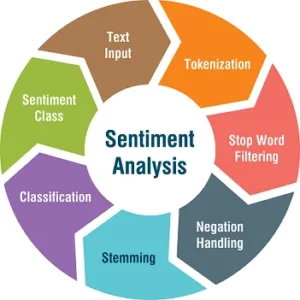 However, sentiment analysis in the stock market assumes heightened significance in today’s trading environment. Because the market represents not only numbers and forecasts but also buyers’ emotions, it is essential to identify these sentiments. The main topic of this post is stock market sentiment analysis—what it is, why it is useful, and how tools such as Alphapro can help.
However, sentiment analysis in the stock market assumes heightened significance in today’s trading environment. Because the market represents not only numbers and forecasts but also buyers’ emotions, it is essential to identify these sentiments. The main topic of this post is stock market sentiment analysis—what it is, why it is useful, and how tools such as Alphapro can help.
What is Stock Market Sentiment Analysis?
The analysis of the general public mood is used as a critical approach to evaluating trader psychology and its effect on stock performance. Thus, market sentiment analysis scientifically evaluates traders’ attitudes and emotional states concerning a particular asset. Sentiment indicators usually include news and updates on traditional and social media platforms, so understanding sentiment analysis and its relation to the stock market is essential for anyone seeking to understand it.
The Importance of Sentiment Analysis and Stock Market Performance
The general feeling of investors on the stock market must be considered since it affects the performance of the stocks. Research also shows traders tend to over-emote to news, shifting stock prices. For example, the trader’s response may cause extraordinary fluctuations in stock movement even based on one topic, which shows that emotions and economic indicators affect each other. , this means that sentiment analysis stock market metrics emerge to be of even greater significance to traders, and not only day traders but also those interested in long-term investment with the specific aim of trying to decipher, to some extent, large-scale trends in the stock market.
Benefits of Using Advanced Sentiment Analysis Tools
Employing various platforms such as Alphapro benefits investors in several ways, especially when it comes to trading in the modern world, where the stocks are traded within a very short period. Alphapro’s sentiment analysis automates extracting information from earnings call transcripts, categorizing the statements as positive, negative, or neutral, thus creating a sentiment for the company. Such tools assist investors in going through essential considerations quickly, which is vital in decision-making concerning capital investments. One of the significant benefits of real-time streaming is that analysts are better placed to fully capture and understand the effects of sentiment on stock performance in a shorter period.
Case Study: Sentiment Analysis Stock Market Examples
A clear example is Kylie Jenner, who took to Twitter to express her dissatisfaction with using Snapchat. This was enough to reduce Snapchat’s price. This example shows that stock sentiment analysis has an immediate connection with stock market fluctuations. Further, it posits that fundamentals may be replaced by emotions, thus implying that participants within the particular market may rely on sentiment analysis when participating in movements of short-term trading activities within volatile markets.
Another example includes the effect of significant events, such as news events, on stock prices. For instance, during earnings season, companies are characterized by high volatility in their stock prices depending on how their results are received in the market and from analysts. The public mood about these announcements can work to the advantage of the trader who gets to know the general mood towards these announcements.
How to Implement Sentiment Analysis in Trading Strategies
To effectively incorporate sentiment analysis and stock market strategies into your trading approach, consider the following steps:
- Stay Informed: Regularly monitor news outlets and social media platforms for updates on stocks of interest. This will help you gauge public sentiment and anticipate potential price movements.
- Utilize Advanced Tools: Leverage platforms like Alphapro, which offer AI-driven sentiment analysis tools, to automate data collection and interpretation. This allows for quicker decision-making based on real-time insights.
- Combined with Technical Analysis: While sentiment analysis provides valuable insights into market psychology, it should be used alongside traditional technical analysis methods for a more comprehensive view of potential price movements.
- Test Your Strategies: Before fully committing to a strategy based solely on sentiment analysis, conduct backtesting using historical data to evaluate its effectiveness under various market conditions.
Conclusion
Therefore, it can be concluded that stock sentiment analysis could be used in trading strategies to improve investment outcomes. Since the market is ever-changing and the numerous outside forces that influence how people think about it form a significant part of trading tools, it puts investors in touch with the psychological aspect through tools such as the ones offered by Alphapro. Paying attention to emotional reactions and employing sentiments as signals leads to a more constructed approach toward trading in today’s ever-evolving market.
Should traders commit themselves to sentiment analysis stock market tools and methodologies, they will likely improve their understanding of market complications and thus develop correct trends and public perception investment strategies. Adopting this analytical method enhances trading benefits and knowledge of investment sentiment and the stock market.